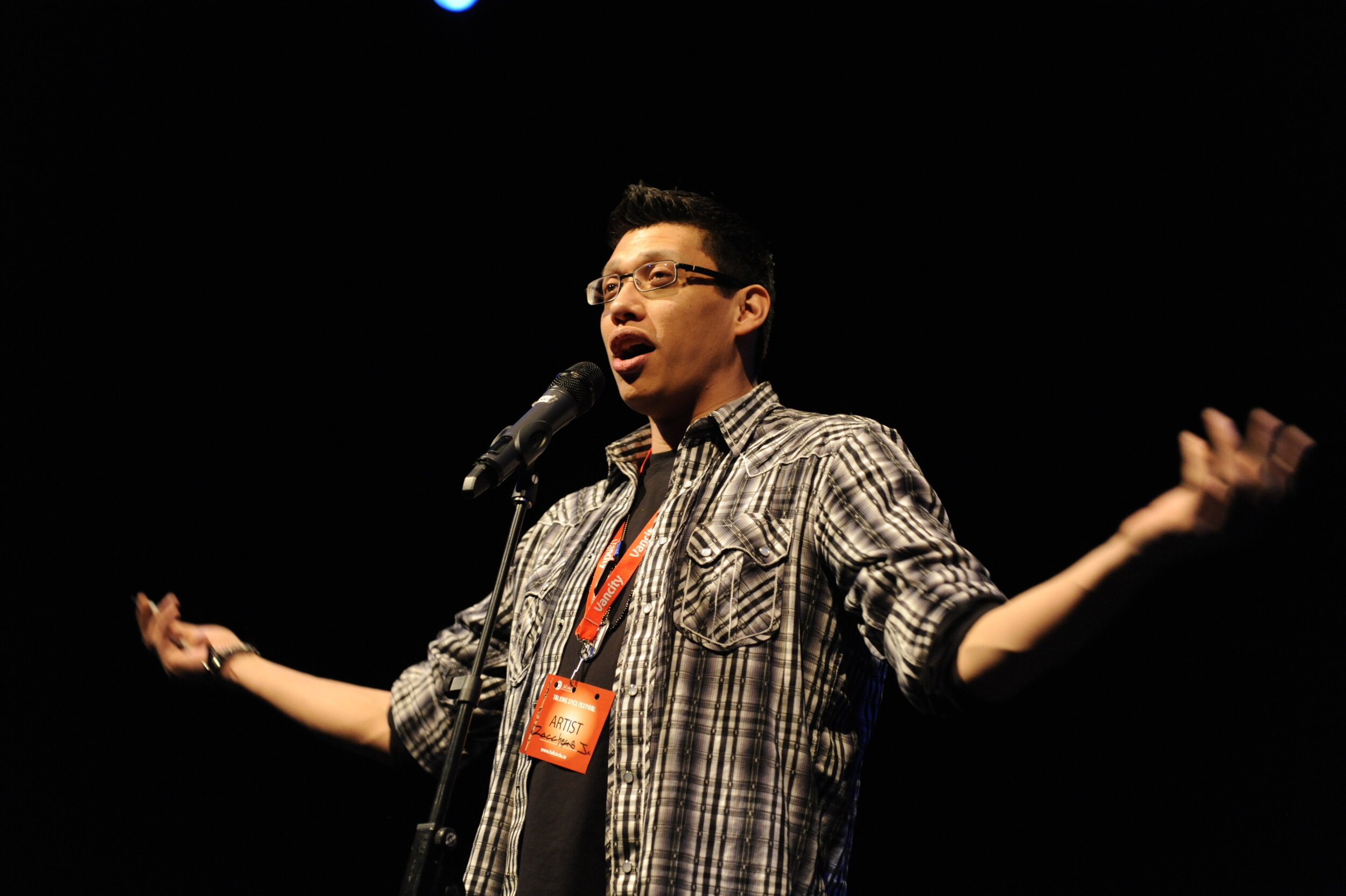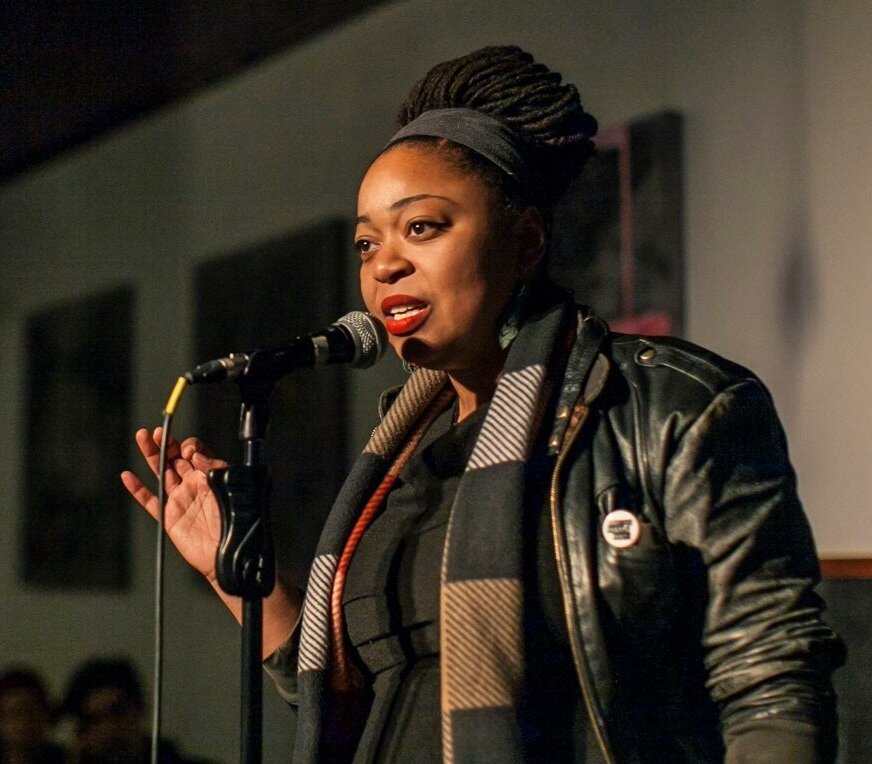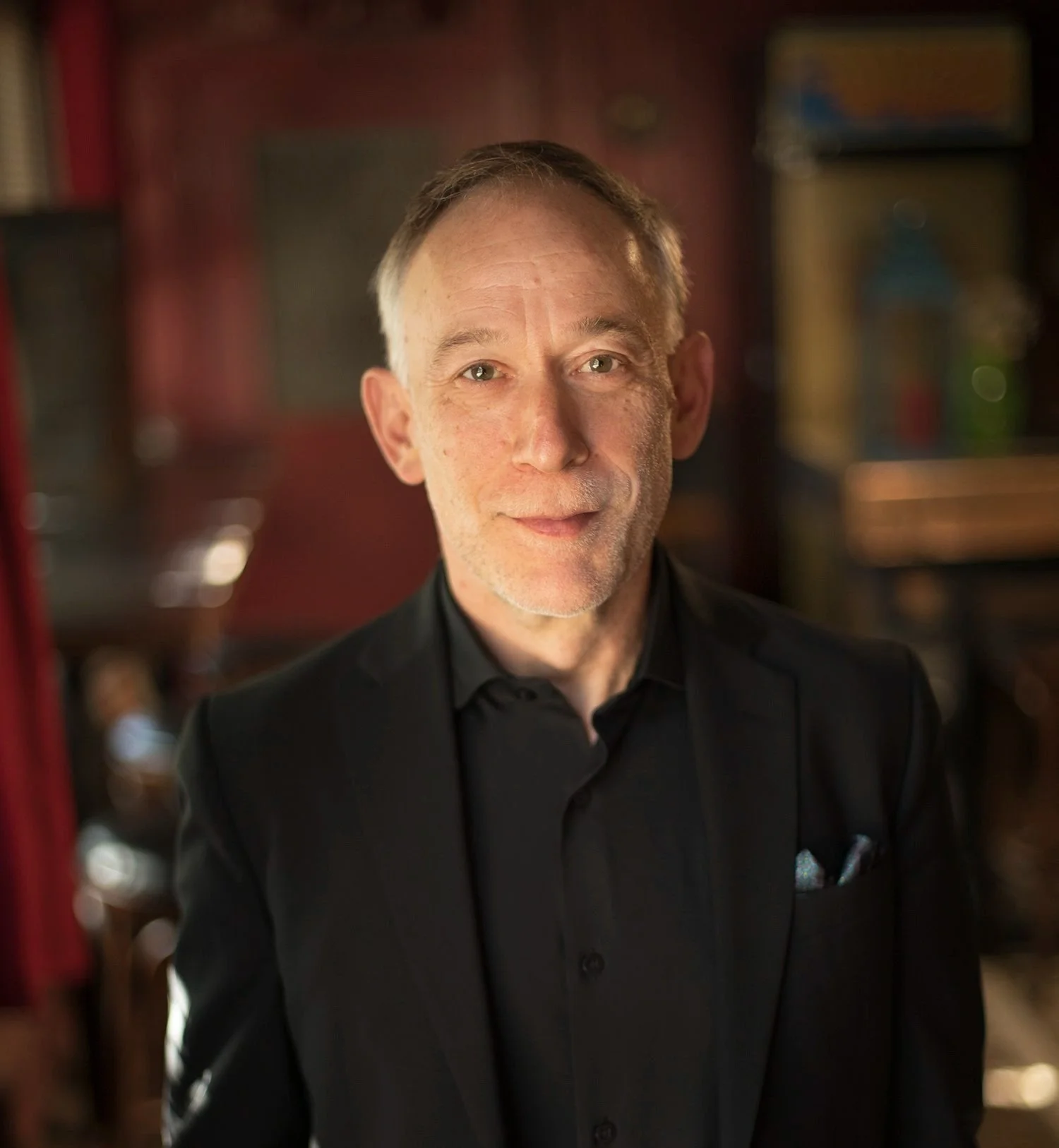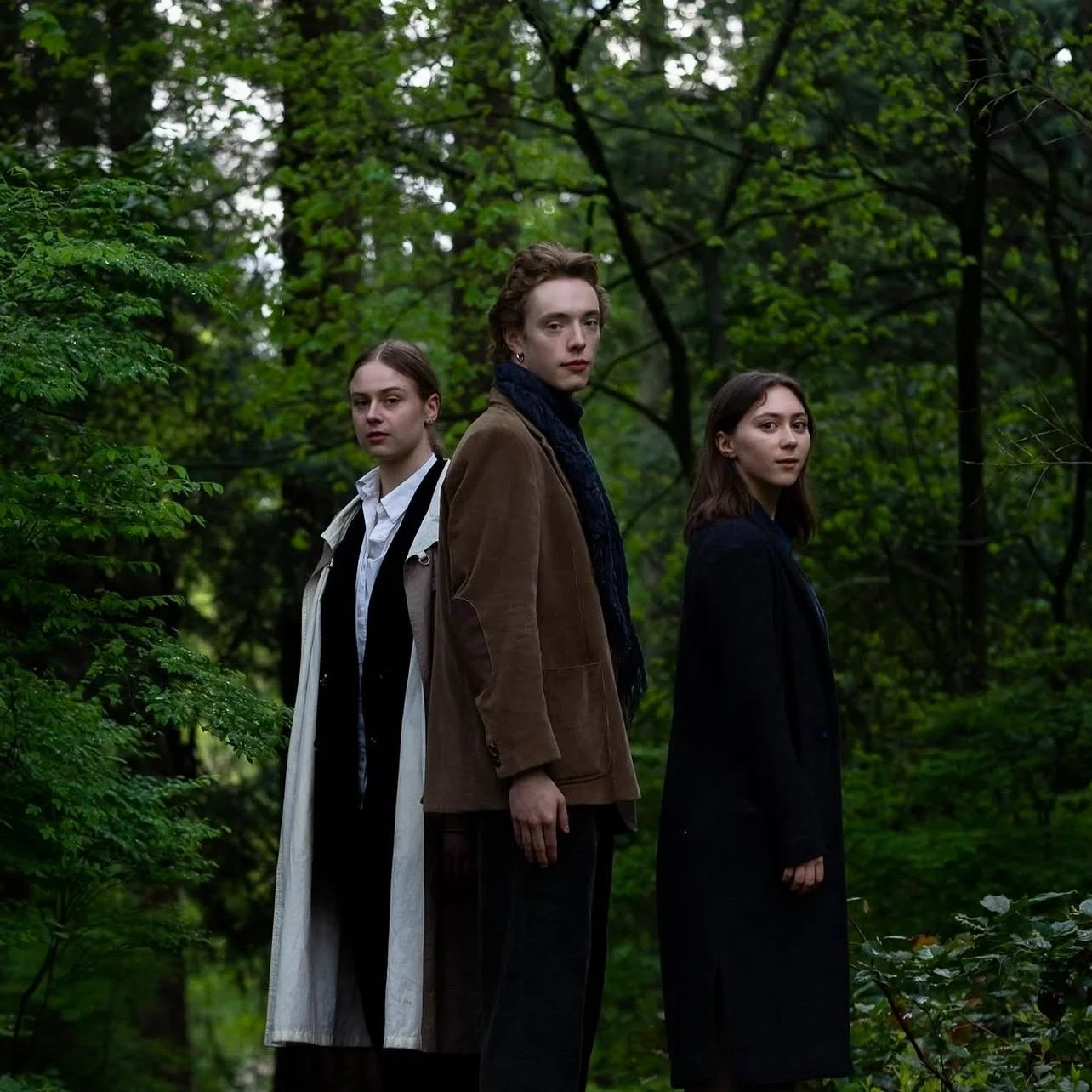From Talking Stick to Microphone honours Indigenous poets Zaccheus Jackson Nyce, Taran Kootenhayoo
Nyla Carpentier curates the beloved Talking Stick Festival event that highlights spoken word and music
Nyla Carpentier (with the late Zaccheus Jackson Nyce in the background) curates From Talking Stick to Microphone 2021.
From Talking Stick to Microphone takes place February 26 at 7 pm PST online as part of the Talking Stick Festival.
EVER SINCE MULTIDISCIPLINARY artist Nyla Carpentier (Tahltan/Kaska) first became involved in Full Circle: First Nations Performance’s Talking Stick Festival, she’s taken on almost every possible role, from gopher to admin assistant to powwow dancer. Now associate producer for the annual Indigenous performing-arts festival, she first presented her poetry at the fest’s inaugural From Talking Stick to Microphone event in 2011. It was curated by the late “East Van ghetto” poet Zaccheus Jackson Nyce (Blackfoot), a larger-than-life personality who encouraged her to share her poems in his characteristic enthusiastic way.
Blackfoot poet Zaccheus Jackson Nyce was an influential and inspiring figure in the nation’s spoken word community.
“He was a very animated, hyperactive poet whose voice could move mountains—and if he liked you, he gave the best bear hugs,” Carpentier tells Stir. “He was playful and very outgoing. In 2011, during the first From Talking Stick to Microphone, I was there as a Full Circle staff member. Zacc had encouraged me leading up to that event to share my poetry in front of people—not just like ‘you should do this’; he grabbed you by the shoulders and said ‘you’ve got to do this!’
“He had his quiet and sweet and grounded moments,” she adds. “But he was a zesty, wild man with a joy of life. He was a trickster that way—not a quiet trickster but a playful trickster who was making noise and who was passionate.”
Carpentier is curating the 10th anniversary edition, on February 26, in Nyce’s honour.
Nyla Carpentier.
Nyce had discovered poetry after overcoming drug addiction; Vancouver’s slam poetry scene embraced him and also unleashed his fierce creativity. He became an active, inspirational figure, a free spirit who was dedicated to working with young people, notably through the Urban Native Youth Society. Sadly, he died at age 36 in 2014 after being struck by a train, leaving a void in the lives of his family and friends and within the nation’s spoken word community.
The Talking Stick to Microphone event has continued since his tragic passing, with his original intent remaining at the event’s heart to this day: to bring people of all different backgrounds together through a celebration of poetry and music.
“What Zacc wanted to do 10 years ago was bring his friends from the poetic slam scene and the music scene to Indigenous audiences,” Carpentier says. “It was a mix of Indigenous and non-Indigenous poets, youth and established poets—basically his favourite people from all walks of life. Times have changed; this year it’s a virtual From Talking Stick to Microphone. But it’s for everyone and anyone.”
The 2021 edition will also honour the late Vancouver Indigenous poet, actor, playwright, and advocate Taran Kootenhayoo (Denesuliné/Stoney Nakoda). A rising talent, he passed away suddenly this past New Year’s Eve at age 27. He first participated in From Talking Stick to Microphone in 2015.
“Zacc was a loud, boisterous, energetic poet; Taran was smooth like water,” Carpentier says. “They were both tricksters in different ways.
“This night has become a night where poets who have performed there have gone on to do amazing things—many have released books or toured; it’s amazing to see where these artists have gone after being part of this night started by someone who wanted to share his love of poetry and creativity with community. It’s this huge circle that just keeps rippling out.”
That ripple effect is what Full Circle: First Nations Performance founder Margo Kane (Cree/Saulteaux) envisioned with the formation of Talking Stick 20 years ago—to create opportunities for Indigenous artists, create community, and make some noise. The performing-arts festival is celebrating this milestone throughout the seasons, with events taking place this winter, spring, summer, and fall.
Now underway, Winter Lodge: Sitting with our Ancestors (to February 27) also features music, dance, movement, readings, discussions, workshops, and more. All performances and events are free. (It is possible to make a donation to Full Circle online.)
From Talking Stick to Microphone event normally takes place at Café Deux Soleils; this year, it’s being filmed at the Firehall Arts Centre for the first time, for virtual viewing at home.
Poet Jillian Christmas will perform at From Talking Stick to Microphone as part of Talking Stick Festival’s 20th anniversary programming. Photo by Nadya Kwandibens
The lineup includes Tawahum, a Lutselk'e Dene and Plains Cree spoken word artist, poet, and land defender; spoken-word artist and rapper Justin Percival; actor, musician, and poet Zofia Rose Musief; poet and emcee Zoey Pricelys Roy; Jillian Christmas, an educator, organizer, and advocate in the arts who works with an anti-oppressive lens; and musical guest Nimkish, a rising Indigiqueer pop artist. Carpentier might share some of her poems as well.
Whether it’s through spoken word, powwow dancing, or theatre, the arts are a way for Carpentier to explore what it means to be mixed race; in addition to her Tahltan and Kaska heritage, she’s also of French and Scottish descent. She debuted her first solo show, Dissection of a Mixed Heritage Woman, in 2019 at the Victoria Fringe Festival before performing it at the Vancouver Fringe Festival and taking it to other places, including Orlando, Florida. She had plans for more touring when the pandemic hit, a time when she was busy with TV, film, and voiceover work.
In the early days of COVID-19, she taught powwow dancing virtually. Carpentier is also artist in residence at Ruby Slippers Theatre, where she’s working on a new full-length play about ancestors, memories, and the idea of being “in between”.
“This year has allowed for deep reflection,” says Carpentier, who’s expecting her first child this summer. “Our family never referred to ourselves as white. The legacies that came from our Scottish and French settlers’ side are stories and roots and connection to music and family and community; there was a sense of giving, of helping your neighbours, and supporting your community. We had the family values in common with our Indigenous roots: sharing, culture, and gathering. I grew up with a sense of being in two worlds, but as a kid I just moved through them.”
She began powwow dancing as soon as she could walk; the form spoke to her and she feels deeply connected to her Indigenous culture through it. She performed throughout other parts of Canada; while she had other theatre training prior to joining Full Circle, it was the approach at Kane’s organization that resonated with her. David McMurry Smith, who has Scottish heritage, was one of her instructors; so was Bob Baker, an elder from the Squamish Nation.
“Having an Indigenous-led training program, they understood the values of storytelling, sharing, laughter, and healing,” Carpentier says. “David was not Indigenous but he cultivated the artist and understood Indigenous values. It was all about nurturing the individual artist no matter what your level was.
“Over 20 years, Talking Stick has been a great place where we have seen so many artists creating, performing, collaborating—Indigenous and non-Indigenous artists sharing,” she adds. “Margo really wanted to gather people together and share and cultivate and build family. It’s all about dreaming and being and activating.”










![Theatre review: Complete Works of William Shakespeare (abridged) [revised] [again] takes pleasingly panicked tour of the Bard’s canon](https://images.squarespace-cdn.com/content/v1/5f10a7f0e4041a480cbbf0be/1752776963817-BS2BYYQMLMSGU9OG3E37/Nathan-Kay-and-Craig-Erickson.-Photo-By-Tim-Matheson.jpg)





